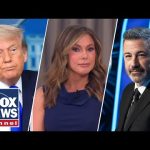Jimmy Kimmel’s recent suspension from his late-night show is more than just another celebrity controversy—it’s an unmistakable turning point in how mainstream media and regulatory bodies respond to liberal elites stepping over the line. The dust-up began when Kimmel made pointed remarks about the killing of conservative activist Charlie Kirk, hinting that Trump supporters were exploiting Kirk’s death and casting aspersions about the murderer’s political motives. Such reckless rhetoric set off a firestorm among conservative circles, fueled further by the chairman of the Federal Communications Commission, Brendan Carr, who publicly chastised both Kimmel and ABC for misrepresenting critical facts during a national tragedy. ABC, under mounting criticism and real regulatory threats, made the right call by yanking the show, sending a message that not even Hollywood privilege grants immunity from accountability.
This episode illustrates a broader frustration that conservatives have felt for years: while right-of-center voices regularly face harsh penalties for their supposed missteps, those on the Left typically escape real consequences, often shielded by their allies in the press and entertainment industry. Yet in this instance, Kimmel’s suspension marks a meaningful break in the pattern, with the network responding decisively instead of hiding behind platitudes about “free speech.” For once, institutional actors took public concern seriously, refusing to enable divisive and misleading commentary simply because it came from a darling of the Left.
The response from left-leaning media figures has been predictably petulant, lamenting the suspension as an attack on creative freedom and the right to satire. But conservatives see the situation for what it is: a clear case of a public personality exploiting the tragedy of Kirk’s murder to further a partisan agenda, all while recklessly directing suspicion at political opponents. Nobody in media—not even those beloved by progressives—should be allowed to stoke division, impugn others without basis, or dance on the graves of ideological adversaries in the name of comedy. This isn’t about “cancel culture”; it’s about consequence culture, where standards ought to be applied fairly and without favoritism.
The sharp watchdog role played by the FCC and ABC affiliates highlights another critical reality often ignored in the rush to defend controversial artists: corporations and regulators do have a duty to uphold basic standards of decency, especially as public discourse grows more polarized and incendiary. Kimmel’s comments, which were ill-timed and, frankly, beneath the dignity of national debate, warranted much more than polite disagreement—they demanded the hard stop that ABC delivered. The network’s actions not only recognized the gravity of Kirk’s loss but underscored how dangerous it is for influential figures to treat real-life tragedy as grist for political point-scoring.
Ultimately, the market and public sentiment will decide how far free speech ought to extend in the entertainment world. But this watershed moment solidifies a principle that is sorely needed: media must rise above self-serving narratives, and those who cross the line should expect real consequences regardless of their politics. In the ongoing struggle for fairness in media, Kimmel’s suspension is a welcome reminder that no one—not even late-night royalty—is untouchable when the rules are broken.




